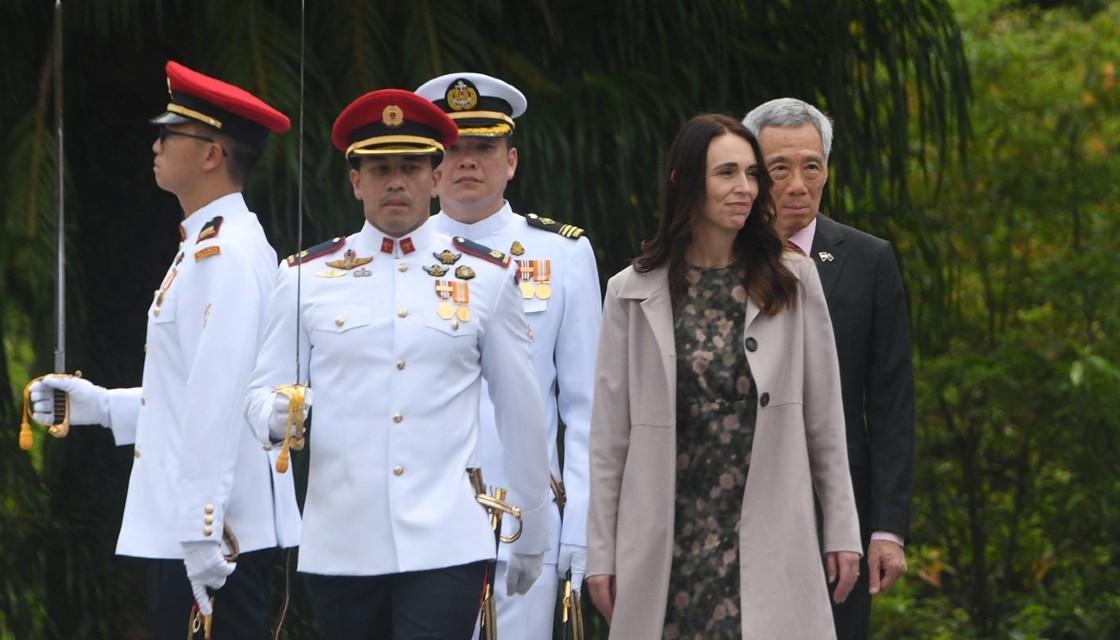The signing of a controversial security agreement between China and the Solomon Islands is being labelled a "major diplomatic failure" for the Australian government and a "turning point" for the Pacific.
The Chinese Foreign Ministry late on Tuesday (NZT) announced it had signed an agreement on security cooperation with the Solomon Islands, but is yet to reveal specific details of the deal or exactly where or when it was signed. The Solomons has reportedly confirmed the signing.
"The two sides will conduct cooperation in such areas as maintenance of social order, protection of the safety of people’s lives and property, humanitarian assistance and natural disaster response, in an effort to help Solomon Islands strengthen capacity building in safeguarding its own security," said Chinese Foreign Ministry spokesperson Wang Wenbin.
A draft agreement leaked in March sparked fears that China could establish a naval base in the region and see the Pacific militarised.
Prime Minister Jacinda Ardern called it "gravely concerning" and said the Solomons could rely on local partners to support its security. New Zealand expressed concerns directly with China and the Solomon Islands, while an Australian minister visited Honiara to try talk the local government out of the deal. The US is sending a senior official there this week.
But the announcement of the signing on Tuesday shows diplomatic efforts to date have failed, AM's Australian correspondent Jason Morrison said on Wednesday morning. He said it was "madness" Australia had let it get this far.
"This is shocking for Australia and this is a major diplomatic failure that we have allowed it to get to this level and have allowed China the crack to get in.
"They can spin it however they like, and we're in the middle of an election campaign, so they will. But this is a failing of this government and it's a failing probably of the last 10 to 15 years of diplomatic administrations in this country, to have allowed this on our doorstep in the region."
Australia's Labor foreign affairs spokesperson Penny Wong reportedly echoed that, calling the agreement the "worst failure of Australian foreign policy in the Pacific since the end of World War II".
In a joint statement on Tuesday, the Australian Foreign Affairs Minister Marise Payne and Pacific Minister Zed Seselja - the minister to visit the Solomons last week - said they were "disappointed" by the signing.
"We are concerned about the lack of transparency with which this agreement has been developed, noting its potential to undermine stability in our region," the ministers said.
The statement noted that the Solomons Prime Minister has said it's not intended that a Chinese military base be established there, but the specifics of the deal remain undisclosed.
Morrison said the agreement would also affect New Zealand.
"China is getting ever so closer to our region with strategic intent. If we want to spin it any way we want to, that is the truth of it.
"I have a feeling we'll be talking about this in 10 years time, about one of the big turning points of our region and it's happening right now, and it's happening today."
He said it was an issue that should be debated during the Australian election campaign "for the sake of the future of the country".
READ MORE
- Solomon Islands signs security pact with China
- China says it signs security pact with Solomon Islands
- China and Solomon Islands sign security pact
- China's security deal with Solomons raises alarm in Pacific
On Tuesday, while speaking at a press conference in Singapore, Ardern said it was "fair to say that we are living in an increasingly complex part of the world and have been for some time".
"But we're also seeing globally that there is pressure on our rules-based order. It has been threatened and disrupted and upended by the actions of Russia.
"I think what we want to see in our region is that we continue the dialogue that is needed to ensure we don't see escalation in our part of the world, militarisation in our part of the world, that we respect one another's sovereignty and territory, and take a very strong stand where we see others in breach of those principles."
A Defence Assessment released by New Zealand in December reported that China is the globe's "major driver of geopolitical change".
"In 2019, China publicly announced its intention to increase its military cooperation in the Pacific, as part of its plan for an enhanced global military footprint," the report said.
"China views an increased presence in the Pacific as part of its natural progression towards its global goals, but there are also more specific reasons for Beijing's interest, spanning geopolitical, strategic and economic drivers."

New Zealand sent defence and police personnel to the Solomon Islands at the end of 2021 to help support the nation as it faced riots partly caused by the local government withdrawing recognition of Taiwan in 2019 and establishing relations with Beijing. New Zealand in March extended that deployment, which will be reviewed again on May 31.
When the leaked agreement emerged, Ardern pointed to that assistance as an "example of where Australia and New Zealand combined had personnel, vessels and a presence there to support the stability in-country".
She said that demonstrated "the need to reach beyond our own region for such support just wasn't there".
NATO, the alliance of European and North American countries, earlier this month said it had "agreed to step up cooperation with our partners in the Asia-Pacific" in response to China's "growing influence".





